Committee and Academic Exchange Conference of Palliative Medicine Branch of Chinese Geriatric Society Held in 2024
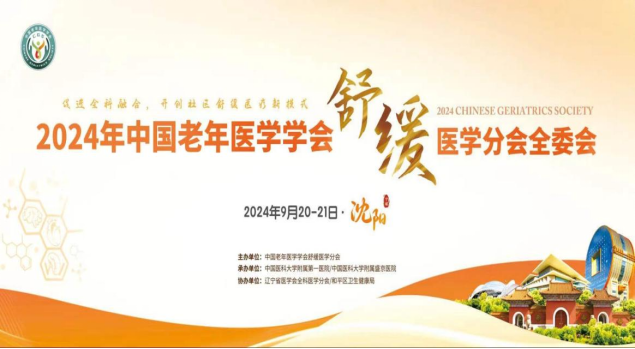 In September, the sequence is three autumn, the autumn wind is cool, and the fruits are full. The 2024 Academic Exchange Conference of the Palliative Medicine Branch of the Chinese Geriatrics Society was successfully held in Shenyang, Liaoning Province on September 20-21. The conference was organized by the Palliative Medicine Branch of the Chinese Geriatric Society, organized by the First Affiliated Hospital of China Medical University and Shengjing Hospital Affiliated to China Medical University, and co-organized by the Health Bureau of Heping District of the General Medicine Branch of Liaoning Medical Association. The conference aimed to explore "promoting the integration of general medicine and creating a new model of community palliative medicine". The conference adopted the mode of academic lectures, experience sharing and workshops. Through offline preaching, online synchronous graphic live broadcast and other ways, the aim is to promote the concept and practical experience of palliative medicine at home and abroad, and build a high-quality academic exchange platform for the same practitioners of palliative medicine.
In September, the sequence is three autumn, the autumn wind is cool, and the fruits are full. The 2024 Academic Exchange Conference of the Palliative Medicine Branch of the Chinese Geriatrics Society was successfully held in Shenyang, Liaoning Province on September 20-21. The conference was organized by the Palliative Medicine Branch of the Chinese Geriatric Society, organized by the First Affiliated Hospital of China Medical University and Shengjing Hospital Affiliated to China Medical University, and co-organized by the Health Bureau of Heping District of the General Medicine Branch of Liaoning Medical Association. The conference aimed to explore "promoting the integration of general medicine and creating a new model of community palliative medicine". The conference adopted the mode of academic lectures, experience sharing and workshops. Through offline preaching, online synchronous graphic live broadcast and other ways, the aim is to promote the concept and practical experience of palliative medicine at home and abroad, and build a high-quality academic exchange platform for the same practitioners of palliative medicine.
On September 20, the National Committee of the Palliative Medicine Branch of the Chinese Geriatric Society was held. At the beginning of the meeting, Zeng Yanying, Director general of the Soothing Branch, made a detailed work report, comprehensively reviewing the achievements and experience of the 2023-2024 branch. Subsequently, Vice President Professor Zhang Dong, Professor Jiang Sunfang, Professor Wang Yumei, Professor Huang Min and the Standing Committee members of the meeting held in-depth and heated discussions to explore the development direction and strategy of the chapter. At the end of the meeting, President Zhan Yiyang made a concluding speech, clarified the focus of the future work of the branch, and put forward forward-looking and instructive planning and suggestions, pointing out the direction for the sustainable development of the branch.
On September 21, the Academic Exchange Conference of Chinese Geriatric Society of Palliative Medicine Branch was grand opening:
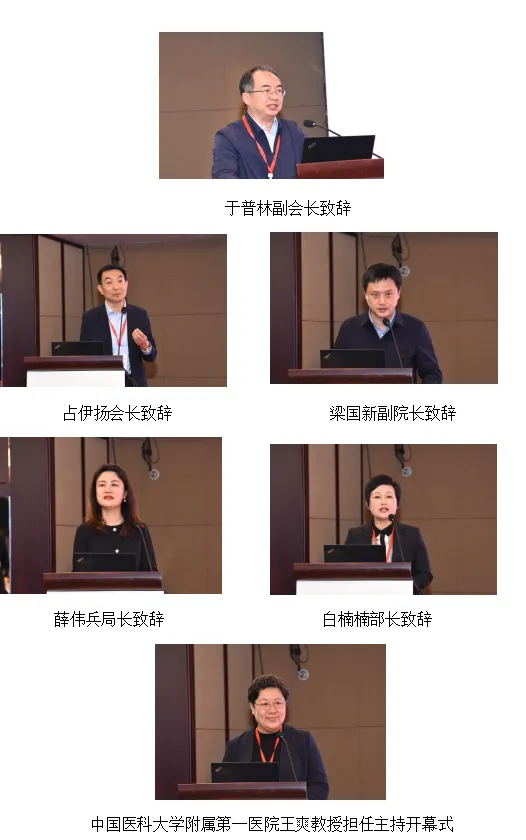
On the morning of September 21, Yu Prin, Vice president of the Chinese Geriatric Society, Zhan Yiyang, President of the Chinese Geriatric Society's Branch of Pallial Medicine, Liang Guoxin, Vice president of the First Affiliated Hospital of China Medical University, Xue Weibing, Director of the Health Department of Heping District of Shenyang, and Bai Nannan, Minister of the Academic Management Department of Liaoning Medical Association, attended and delivered a speech, jointly expressing their deep expectations for the meeting.
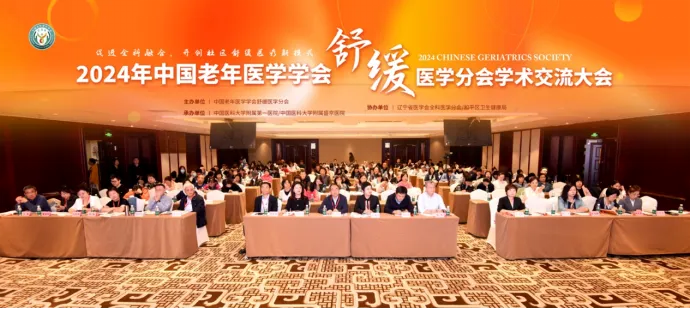
Thematic presentation:
The conference invited Jiang Sunfang, Director of the Department of General Medicine of Shanghai Medical College of Fudan University, Zhang Dong, Director of the Oncology Department of the Second Medical Center of the PLA General Hospital, Huang Min, director of the standardized Training Base for General Practitioners of Suzhou Municipal Hospital, Chen Guomei, Deputy Director of the Health Bureau of Heping District of Shenyang, Wang Dongqing, Chairman of the General Medicine Branch of Panjin Medical Association, and General Medicine of the First Affiliated Hospital of China Medical University Associate Professor Ke Qi Dianjun, Deputy Director Hu Weina of the General Medicine Ward of the Fourth Affiliated Hospital of China Medical University, and Professor Wang Hao, former president of Nanjing Yincheng Rehabilitation Hospital, presided over the keynote report session. At the same time, many experts and scholars from all over the country were invited to share their experience and workshop practice in palliative care. The evolution and development logic of hospice policy in China around palliative care, the Science of Palliative care - Chinese style palliative care, the practice of palliative care, focusing on combination therapy Hot topics such as optimizing blood glucose control, discussion - Clinical practice of hospice care, practice of palliative care - Experience sharing in Shenyang, clinical application value of oral hypoglycemic drugs from the perspective of changes in diabetes treatment concepts, and latest scientific research achievements were shared and exchanged.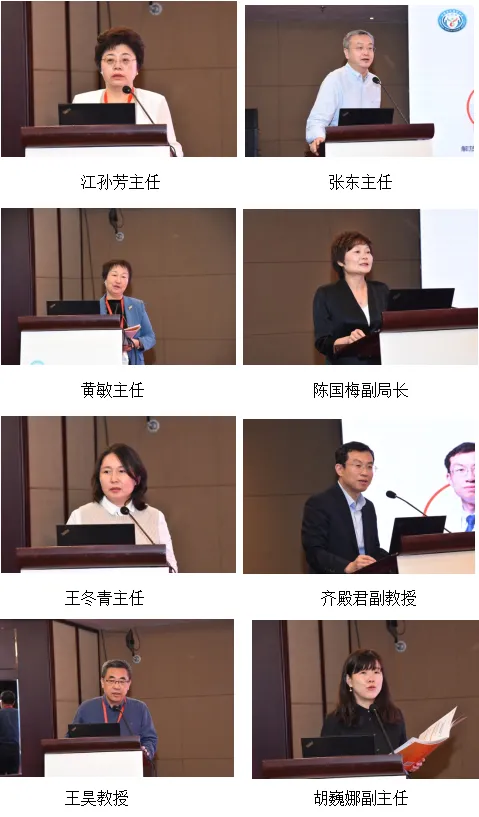
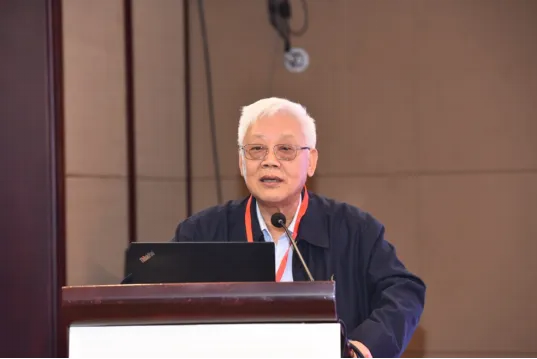
Professor Shi Yongxing of Shanghai Hospice Service Management Center published a theme report entitled "The Evolution and development logic of China's hospice Policy in Palliative Care", which made a detailed analysis and introduction of the evolution and development logic of China's hospice policy, the development history and core policies of Shanghai's hospice service model and system.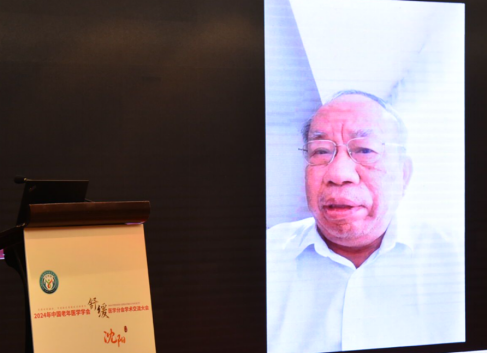
Professor Yuan Zhong of Peking Union Medical College published a theme report entitled "The Science of Good Death - Chinese Style Palliative Medicine" online, explaining the differences in the concepts of hospice care at home and abroad. The common goal is to reduce the pain and discomfort of patients, improve the quality of life, and help patients die comfortably, peacefully and with dignity. In order to achieve the goal of peace of the dead and peace of the living, euthanasia in China should be established on the basis of voluntary medical advice.
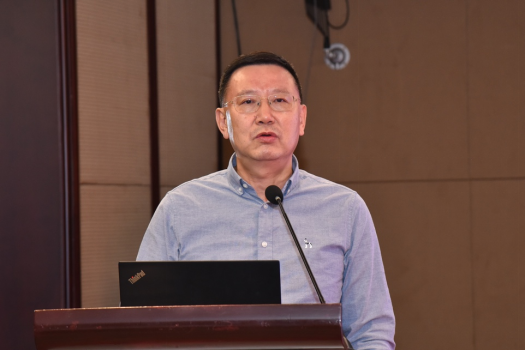
Zhou Mingfei, president of Nanjing Xiaohang Hospital, shared and published a theme report entitled "The Practice of Palliative care - Nanjing Experience", introducing the overview of Nanjing hospice care model and the exploration and practice of community hospice care model; Pay attention to the construction of the platform, encourage diverse participation, focus on improving the hospice service system, strengthen guidance and training, focus on improving the quality of hospice service, pay attention to publicity and guidance, and promote the concept of hospice service; Strengthen innovation, create characteristics of hospice pilot institutions, and make efforts and exploration in many aspects such as the road of medical and nursing care.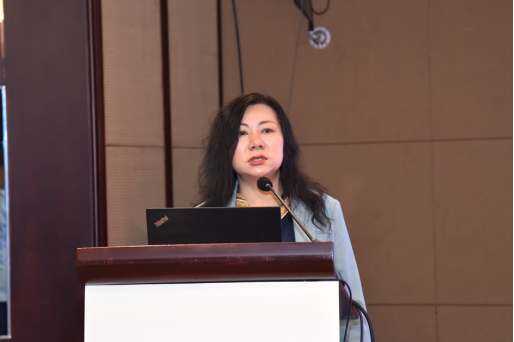
Wang Yumei, director of the hospice Unit of Shengjing Hospital Affiliated to China Medical University, shared the theme report entitled "Hospice Shengjing Model", and shared the development history of the hospice specialty of Shengjing Hospital, the professional characteristics and existing problems of the hospice ward, and the future vision of the hospice ward in detail.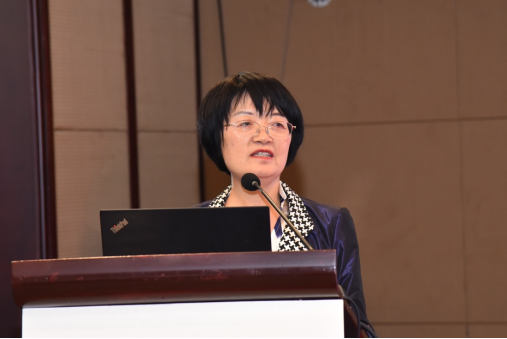
Chen Qiuying, chief physician of Beishi Community Health Service Center, Heping District, Shenyang, shared and published a theme report entitled "The Practice of Palliative care - Shenyang Experience Sharing", introducing hospice team building, hospice training, harvest and perception, and existing problems in detail.
Meeting summary
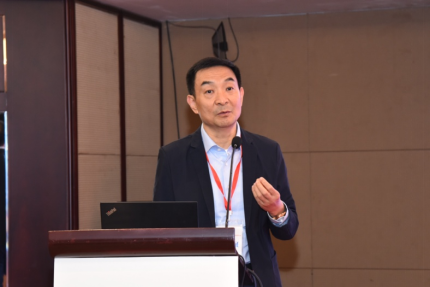
Zhan Yiyang, President of the Soothing Medicine Branch of the Chinese Geriatric Society, summarized the forum. He said that palliative care was mostly limited to hospital and surrounding medical services, and community-based palliative care, including palliative care, was relatively rare. However, with the development of primary health care, the community's demand for palliative care and hospice services in this area is gradually being paid attention to and met. Although there are gaps and gaps, these are slowly being filled to provide more rational care for the critically ill and terminally ill.
Visit and exchange: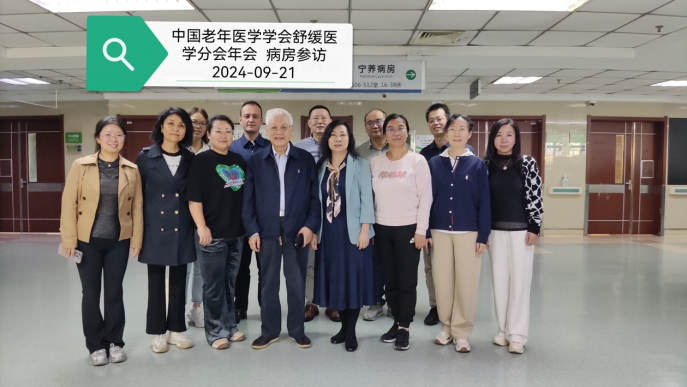
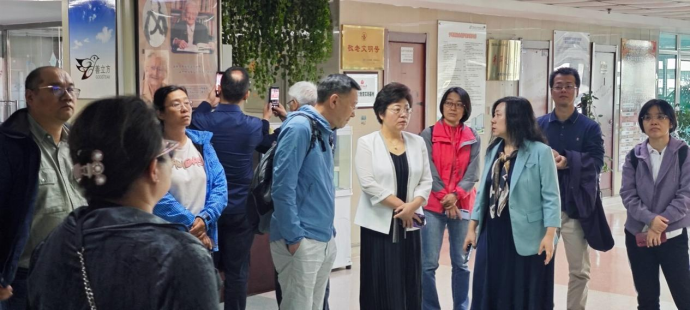 During the meeting, some experts and representatives were organized to visit the hospice ward of Shengjing Hospital of China Medical University and Beishi Community Health Service Center of Shenyang Heping District and held a symposium.
During the meeting, some experts and representatives were organized to visit the hospice ward of Shengjing Hospital of China Medical University and Beishi Community Health Service Center of Shenyang Heping District and held a symposium.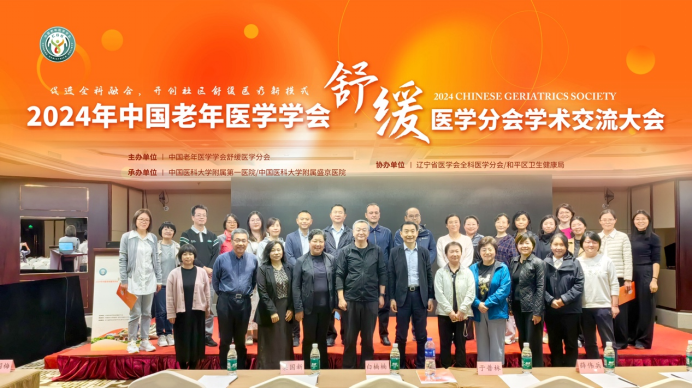
This conference brought the most cutting-edge scientific research information and academic reports, shared valuable clinical experience and research results, carried out field visits, and presented a feast of knowledge for participants in the form of offline visits, investigations and exchanges, providing us with valuable guidance and inspiration.
The success of this conference marks a solid step forward in personnel training and academic exchanges in the field of palliative medicine. It is expected that in the future work, we will pay more attention to the overall needs and quality of life of patients, especially elderly patients, strengthen the construction of social palliative medicine service system, and explore the development of a palliative medicine system in line with national conditions.

